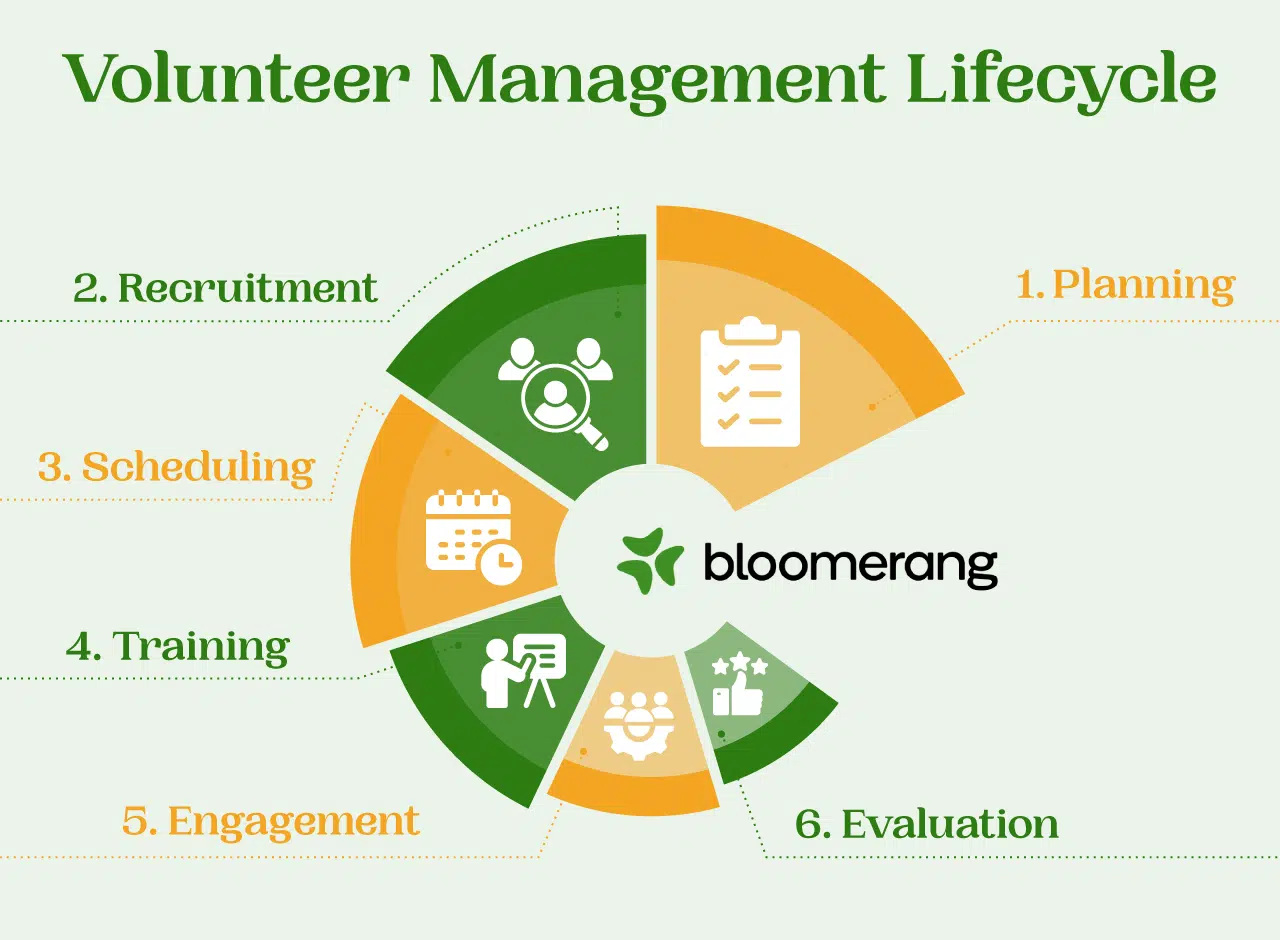Volunteer Program Management Careers: A Comprehensive Guide
Volunteer program management is a rewarding career path that combines organizational skills, leadership, and a passion for community service. Professionals in this field coordinate, lead, and manage volunteer efforts for nonprofit organizations, government agencies, and community groups. As more organizations recognize the value of volunteer contributions, the demand for skilled volunteer program managers has grown, making this a promising career choice for those who are dedicated to making a difference in their communities.
The Role of a Volunteer Program Manager
A volunteer program manager is responsible for overseeing all aspects of a volunteer program, from recruitment and training to coordination and evaluation. They ensure that volunteers are effectively utilized and that their contributions align with the organization’s goals. Key responsibilities include:
- Recruitment and Retention: Attracting the right volunteers and ensuring they remain engaged is critical. Managers develop strategies to recruit volunteers through various channels, including online platforms, community events, and partnerships with other organizations. Retention involves creating a positive experience for volunteers, offering recognition, and providing opportunities for growth and development.
- Training and Development: Once volunteers are recruited, they need to be properly trained. This may involve creating training materials, conducting workshops, or organizing mentorship programs. A well-trained volunteer force is crucial for the success of any program.
- Coordination and Supervision: Volunteer program managers coordinate volunteer activities, ensuring that volunteers are deployed effectively and that their efforts contribute to the organization’s mission. They also supervise volunteers, providing guidance and support as needed.
- Evaluation and Reporting: Regular evaluation of volunteer programs is necessary to assess their effectiveness and identify areas for improvement. Managers collect data on volunteer activities, track progress toward goals, and report on the impact of volunteer contributions to stakeholders.
- Relationship Building: Building strong relationships with volunteers, staff, and community partners is a key aspect of the role. Volunteer program managers work to create a collaborative environment where volunteers feel valued and motivated to contribute.
Skills and Qualifications Needed
Successful volunteer program managers possess a unique blend of skills and qualifications that enable them to excel in this role. These include:
- Leadership: The ability to lead and inspire volunteers is essential. This includes setting a vision for the volunteer program, motivating volunteers to achieve their best, and leading by example.
- Communication: Effective communication skills are critical for interacting with volunteers, staff, and other stakeholders. This includes both verbal and written communication, as well as the ability to listen and respond to feedback.
- Organizational Skills: Managing a volunteer program requires strong organizational skills. This includes the ability to plan and coordinate activities, manage multiple tasks simultaneously, and ensure that all aspects of the program run smoothly.
- Problem-Solving: Volunteer program managers often face challenges, such as volunteer shortages or conflicts within the team. The ability to think critically and develop creative solutions is key to overcoming these challenges.
- Empathy and Interpersonal Skills: Understanding and connecting with volunteers on a personal level is important for building strong relationships. Volunteer program managers must be empathetic and able to relate to the diverse backgrounds and experiences of their volunteers.
- Fundraising and Budgeting: Many volunteer programs operate on limited budgets, so volunteer program managers often need to be skilled in fundraising and budgeting. This may involve writing grant proposals, organizing fundraising events, or managing donations.
- Technology Skills: Familiarity with volunteer management software and other digital tools is increasingly important. These tools help streamline the recruitment, scheduling, and communication processes, making it easier to manage large volunteer programs.

Educational Pathways and Professional Development
While there is no one-size-fits-all educational path for becoming a volunteer program manager, certain qualifications and training can enhance career prospects in this field.
- Bachelor’s Degree: A bachelor’s degree in fields such as nonprofit management, social work, human resources, or communications is often beneficial. These programs provide foundational knowledge in areas like organizational behaviour, project management, and community engagement.
- Certification: Obtaining certification in volunteer management can enhance your credibility and skills. The Certification in Volunteer Administration (CVA) is a recognized credential that demonstrates expertise in volunteer program management. The CVA requires candidates to pass an exam and demonstrate professional experience in the field.
- Professional Associations: Joining professional associations, such as the Association for Volunteer Administration (AVA) or the Council for Certification in Volunteer Administration (CCVA), can provide access to networking opportunities, professional development resources, and industry news.
- Continuing Education: Staying updated on the latest trends and best practices in volunteer management is important. Many universities and organizations offer continuing education courses, workshops, and seminars that focus on topics such as volunteer recruitment, leadership, and program evaluation.
Career Opportunities in Volunteer Program Management
Volunteer program management offers a wide range of career opportunities across various sectors. These include:
- Nonprofit Organizations: Nonprofits are the primary employers of volunteer program managers. These organizations rely heavily on volunteers to carry out their missions, making the role of volunteer program manager crucial. Examples of nonprofits that hire volunteer program managers include food banks, animal shelters, environmental organizations, and humanitarian groups.
- Healthcare Organizations: Hospitals, clinics, and other healthcare facilities often have volunteer programs that support patient care, fundraising, and community outreach. Volunteer program managers in healthcare settings coordinate volunteer efforts to enhance the quality of care and improve patient experiences.
- Educational Institutions: Schools, colleges, and universities often have volunteer programs that engage students, alumni, and community members in various activities. Volunteer program managers in educational settings oversee these programs, coordinating efforts such as tutoring, mentoring, and fundraising.
- Government Agencies: Many government agencies, particularly at the local level, have volunteer programs that support public services. For example, volunteers may assist with emergency response efforts, community clean-ups, or social services. Volunteer program managers in government agencies ensure that these programs are effectively managed and that volunteers are properly trained and utilized.
- Corporate Social Responsibility (CSR) Programs: Many companies have CSR programs that involve employee volunteering. Volunteer program managers in corporate settings coordinate these programs, aligning volunteer efforts with the company’s values and goals. This may include organizing volunteer days, managing partnerships with nonprofits, and reporting on the impact of the program.
Challenges and Rewards of the Career
Like any career, volunteer program management comes with its own set of challenges and rewards.
Challenges
- Volunteer Retention: Keeping volunteers engaged and motivated can be challenging, especially when they are contributing their time without financial compensation. Volunteer program managers need to find ways to keep volunteers committed to the cause, such as offering recognition, creating a positive volunteer experience, and providing growth opportunities.
- Resource Constraints: Many volunteer programs operate with limited budgets and resources, which can make it difficult to implement large-scale initiatives or provide adequate support to volunteers. Volunteer program managers must be resourceful and creative in finding ways to maximize the impact of their programs with the resources available.
- Managing Diverse Teams: Volunteer programs often attract individuals from diverse backgrounds, with different skills, experiences, and motivations. Managing such a diverse team can be challenging, particularly when conflicts arise or when volunteers have differing expectations.
- Balancing Multiple Priorities: Volunteer program managers often juggle multiple tasks and responsibilities, from recruitment and training to coordination and evaluation. Balancing these priorities can be difficult, especially when unexpected challenges arise.
Rewards
- Making a Difference: One of the most rewarding aspects of a career in volunteer program management is the opportunity to make a tangible difference in the community. Whether it’s helping those in need, supporting a cause you’re passionate about, or improving the quality of life for others, the impact of your work can be incredibly fulfilling.
- Building Relationships: Volunteer program managers have the opportunity to build meaningful relationships with volunteers, staff, and community partners. These relationships can be personally and professionally rewarding, providing a sense of community and collaboration.
- Personal Growth: Managing a volunteer program offers numerous opportunities for personal growth and development. You’ll develop skills in leadership, communication, problem-solving, and more, all while working in a dynamic and challenging environment.
- Career Advancement: The experience gained in volunteer program management can open doors to other career opportunities within the nonprofit sector, government agencies, or corporate CSR programs. Many volunteer program managers go on to hold leadership positions, such as executive director or program director.

The Future of Volunteer Program Management
The field of volunteer program management is evolving, driven by changes in technology, demographics, and societal trends. Understanding these changes can help aspiring and current volunteer program managers stay ahead of the curve and adapt to new challenges and opportunities.
Technological Advancements
Technology is playing an increasingly important role in volunteer program management. Volunteer management software, social media, and online platforms are transforming the way organizations recruit, manage, and communicate with volunteers. These tools can help streamline processes, improve communication, and enhance the volunteer experience. Volunteer program managers who are tech-savvy and open to adopting new technologies will be better equipped to manage programs in the digital age.
Changing Volunteer Demographics
As the demographics of volunteers continue to change, volunteer program managers will need to adapt their strategies to meet the needs and preferences of different groups. For example, younger volunteers may prefer flexible, short-term commitments that fit around their busy schedules, while older volunteers may be looking for more meaningful, long-term roles. Understanding these demographic trends and tailoring volunteer opportunities accordingly will be key to attracting and retaining volunteers.
Increased Focus on Impact
There is a growing emphasis on measuring and demonstrating the impact of volunteer programs. Donors, funders, and other stakeholders are increasingly interested in seeing the tangible results of volunteer efforts. Volunteer program managers will need to develop robust evaluation and reporting systems that can track the impact of their programs and communicate this impact to stakeholders.
Globalization and Virtual Volunteering
The rise of globalization and virtual volunteering is expanding the reach of volunteer programs beyond local communities. Volunteer program managers may need to manage volunteers who are based in different parts of the world or who are contributing remotely. This can present new challenges in terms of coordination, communication, and cultural sensitivity, but it also offers exciting opportunities to engage a more diverse group of volunteers and tackle global issues.
A career in volunteer program management offers a unique blend of challenges and rewards. It’s a field that requires strong leadership, communication, and organizational skills, as well as a deep commitment to community service. For those who are passionate about making a difference, this career path offers the opportunity to lead meaningful change, build lasting relationships, and grow both personally and professionally.

As the field continues to evolve, volunteer program managers will need to stay adaptable, embrace ologies, understand, and focus on contact of their programs. By doing so, they can ensure that their volunteer programs continue to thrive and make a positive difference in the communities they serve. Whether you’re just starting out in your career or looking to advance in the field, volunteer program management offers a fulfilling and impactful career path that can truly change lives.




Post Comment